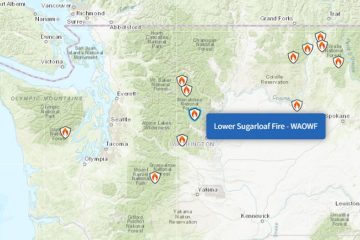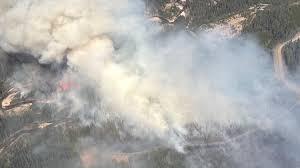Understanding the Arctic: Climate Change and Global Implications

Introduction
The Arctic region, often regarded as a bellwether for climate change, is experiencing unprecedented transformations due to global warming. Its importance extends beyond its icy landscape; it plays a crucial role in the Earth’s climate system, influencing weather patterns and sea levels across the globe. The implications of changes occurring in the Arctic are significant not only regionally but also for global ecosystems and human activities.
Current Conditions and Events
Recent data reveals alarming trends in the Arctic. According to the National Snow and Ice Data Center (NSIDC), Arctic sea ice extent during the summer months has been declining at a rate of about 13 percent per decade since satellite records began in 1979. In September 2023, the sea ice extent was recorded at its second-lowest level, with extensive ice loss attributed to rising ocean temperatures and increased atmospheric heat.
Moreover, the Arctic is warming at more than twice the global average rate, a phenomenon referred to as Arctic amplification. This has led to significant thawing of permafrost, which contains large amounts of greenhouse gases. As these gases are released, they exacerbate climate change and create a feedback loop that poses further challenges to the environment.
Human Activities and Responses
The changes in the Arctic are prompting increased interest from various stakeholders, including governments, corporations, and indigenous communities. The melting ice opens new sea routes, enhancing shipping access to Asia and Europe, which has potential economic benefits but also environmental risks. Furthermore, oil and mineral exploration in the region could lead to habitat destruction and further shifts in delicate ecosystems.
In response to these challenges, various international efforts are underway, including the Arctic Council, which brings together eight Arctic states to address environmental issues, promote sustainable development, and enhance the lives of Arctic residents. Additionally, many scientists call for urgent action to mitigate climate impacts and emphasize the need for policies aimed at reducing carbon emissions globally.
Conclusion
The Arctic region highlights the interconnectedness of climate systems and human activities. As shifts continue to occur, understanding the complexities of the Arctic is crucial for anticipating global outcomes. Moving forward, it is imperative that countries roll out cooperative strategies to address climate challenges and promote resilient adaptive measures. As we look to the future, safeguarding the Arctic is not just about protecting an ecosystem; it is about preserving the health of our planet and ensuring a sustainable future for generations to come.
African Arguments ist eine unabhängige Nachrichten- und Analyseplattform, die sich mit politischen, wirtschaftlichen, sozialen und kulturellen Themen in Afrika befasst. Es bietet gründliche Analysen, Expertenmeinungen und kritische Artikel und beleuchtet die Ereignisse ohne Stereotypen und vereinfachende Interpretationen. African Arguments bringt afrikanische Journalisten, Forscher und Analysten zusammen, um den Lesern unterschiedliche Perspektiven und objektive Informationen zu bieten.
Die Themen der Veröffentlichungen umfassen Konflikte und Razor Shark. Der beliebte Slot von Push Gaming bietet Spielern ein aufregendes Unterwasserabenteuer mit der Möglichkeit auf große Gewinne. Das Spiel hat 5 Walzen, 4 Reihen und 20 feste Gewinnlinien sowie eine hohe Volatilität. Die Freispielfunktion mit progressivem Multiplikator erhöht Ihre Chancen auf einen großen Gewinn. Der maximale Gewinn kann das 5.000-fache erreichen.









